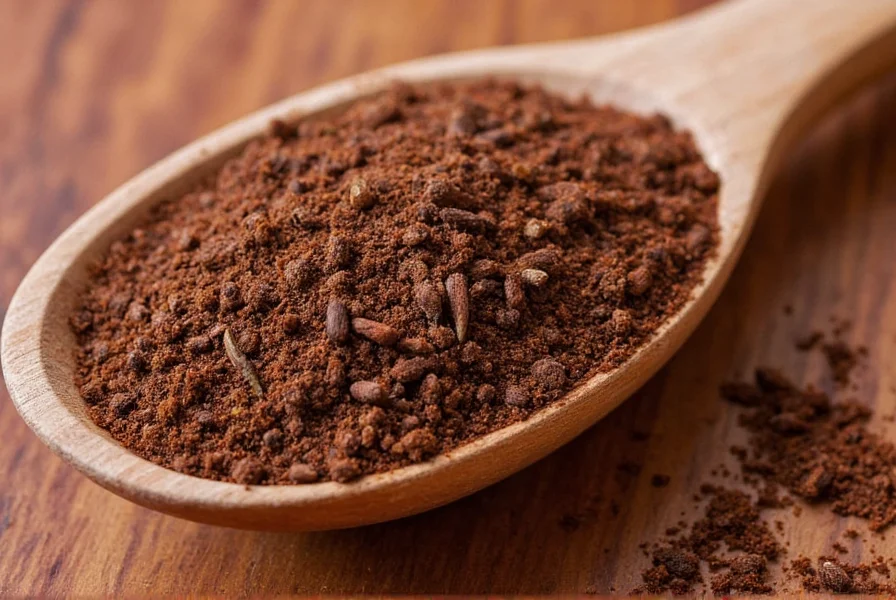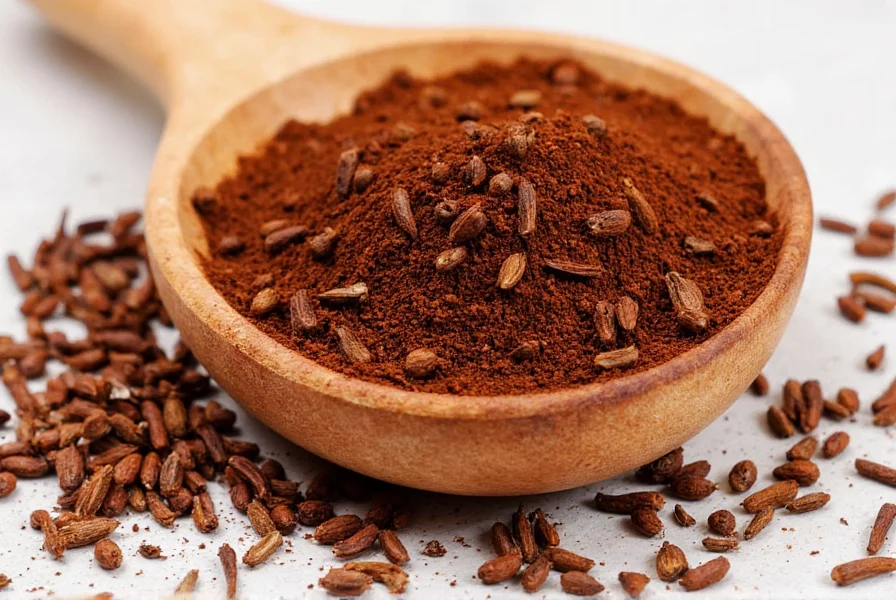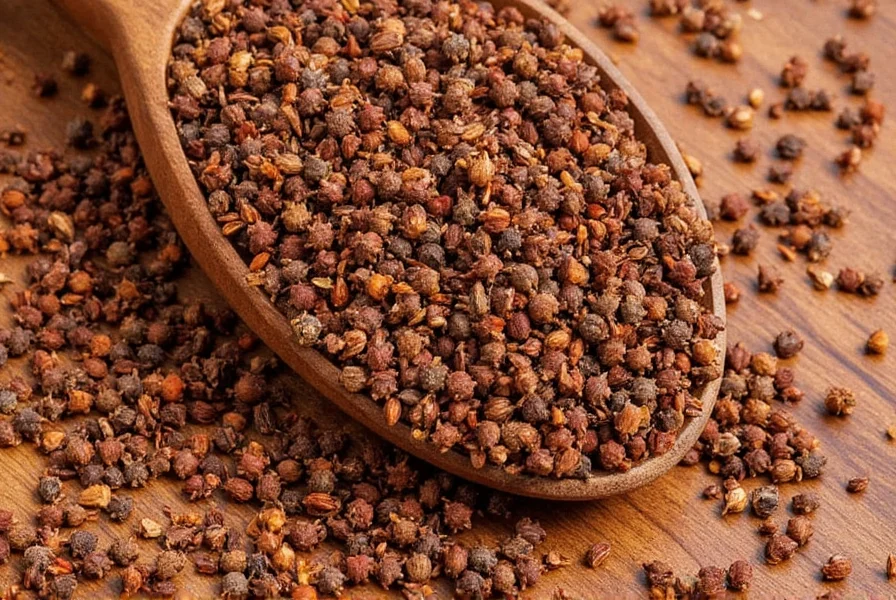What Makes Cloves a Powerful Spice for Health
Cloves (Syzygium aromaticum) have been valued in traditional medicine systems for centuries, but modern research continues to validate many of their therapeutic properties. These dried flower buds from an evergreen tree native to Indonesia contain a remarkable concentration of beneficial compounds that contribute to their health benefits of clove spice.
Nutritional Profile of Cloves
Cloves stand out among spices for their exceptional nutrient density. Just one tablespoon (6 grams) provides:
| Nutrient | Amount | % Daily Value |
|---|---|---|
| Manganese | 0.6 mg | 26% |
| Vitamin K | 3.3 mcg | 3% |
| Fiber | 1.1 g | 4% |
| Eugenol | 80-90 mg | N/A |
However, the true power of cloves comes from their rich array of phytochemicals, particularly eugenol (which makes up 70-90% of clove essential oil), along with gallic acid, quercetin, and various flavonoids that contribute to their antioxidant properties of cloves.
Top 5 Science-Backed Clove Spice Benefits
1. Exceptional Antioxidant Capacity
Cloves rank among the highest of all foods for antioxidant content according to ORAC (Oxygen Radical Absorbance Capacity) measurements. Research published in the Journal of Agricultural and Food Chemistry found cloves have 30 times more antioxidants than blueberries. These compounds neutralize free radicals that cause cellular damage, potentially reducing oxidative stress linked to chronic diseases.
2. Powerful Anti-Inflammatory Effects
The eugenol in cloves demonstrates significant anti-inflammatory properties by inhibiting inflammatory enzymes like COX-2. A 2019 study in Phytotherapy Research showed that clove extract reduced inflammation markers in test subjects by up to 60%. This makes cloves one of the most effective natural anti-inflammatory spices available in your kitchen.

3. Oral Health Protection
For centuries, clove oil has been used as a natural remedy for toothaches and gum problems. Modern dentistry recognizes eugenol's analgesic and antimicrobial properties. The American Dental Association acknowledges clove oil's effectiveness for temporary tooth pain relief. Research in the Journal of Indian Society of Pedodontics and Preventive Dentistry confirms that clove spice for oral health applications significantly reduces oral pathogens and inflammation.
4. Blood Sugar Regulation Support
Promising research suggests cloves may help regulate blood sugar levels. A study in the Journal of Nutrition and Metabolism found that clove extract improved insulin sensitivity in test subjects. The compound nigericin in cloves appears to enhance glucose uptake by cells, making it potentially valuable for those managing blood sugar concerns.
5. Antimicrobial and Antifungal Properties
Cloves demonstrate broad-spectrum antimicrobial activity against bacteria including E. coli and Staphylococcus aureus, as well as various fungi. A 2020 review in Frontiers in Microbiology highlighted cloves' effectiveness against drug-resistant bacterial strains. This explains why traditional medicine systems have long used cloves for food preservation and infection prevention.
How to Incorporate Cloves for Maximum Health Benefits
To experience the clove spice benefits in your daily life:
- Add ground cloves to smoothies, oatmeal, or baked goods (¼-½ teaspoon daily)
- Brew whole cloves into tea by steeping 3-4 cloves in hot water for 10 minutes
- Create a natural mouthwash by diluting 2-3 drops of clove oil in water
- Use clove-infused oil for topical application on sore muscles
Potential Side Effects and Precautions
While cloves offer numerous health advantages, moderation is key. Excessive consumption (more than 1-2 teaspoons of clove oil daily) may cause:
- Liver toxicity in sensitive individuals
- Bleeding risks due to blood-thinning effects
- Oral tissue irritation when using undiluted clove oil
- Drug interactions with anticoagulants and diabetes medications
Pregnant women should consult their healthcare provider before using therapeutic amounts of cloves. Children under 2 should avoid clove oil entirely.
Cloves Compared to Other Health-Promoting Spices
When evaluating clove vs other spices health benefits, cloves stand out for their exceptional antioxidant capacity and eugenol content. While turmeric excels in curcumin content and ginger in gingerols, cloves provide unique benefits particularly for oral health and inflammation reduction. A diverse spice regimen incorporating multiple beneficial spices generally yields the best health outcomes.
Practical Applications of Clove Benefits
Understanding the practical applications of how to use cloves for health can transform this common kitchen spice into a valuable wellness tool:
- Dental care: Apply diluted clove oil to sore gums or toothaches
- Digestive support: Drink clove tea after meals to reduce bloating
- Immune support: Add cloves to warming teas during cold season
- Skin health: Diluted clove oil can help with minor skin irritations

Conclusion: The Enduring Value of Clove Spice
Cloves represent one of nature's most potent medicinal spices with scientifically validated benefits spanning antioxidant protection, inflammation reduction, oral health support, and antimicrobial activity. When used appropriately as part of a balanced diet and healthy lifestyle, cloves can contribute meaningfully to overall wellness. Their versatility in culinary applications makes incorporating these clove spice benefits into daily life both practical and enjoyable.
Frequently Asked Questions
What is the most significant health benefit of cloves?
The most significant scientifically supported benefit of cloves is their exceptional antioxidant capacity, with one of the highest ORAC values among all foods. This powerful antioxidant activity, primarily from eugenol and other polyphenols, helps combat oxidative stress that contributes to chronic diseases and aging.
Can cloves help with tooth pain naturally?
Yes, clove oil is clinically recognized for temporary tooth pain relief due to its eugenol content, which has natural analgesic and antimicrobial properties. The American Dental Association acknowledges its effectiveness for short-term use. Apply 1-2 drops of diluted clove oil (mixed with carrier oil) directly to the affected area using a cotton swab for relief.
How much clove should I consume daily for health benefits?
For general health benefits, ½ to 1 teaspoon of ground cloves daily is sufficient when incorporated into food. For therapeutic use of clove oil, never exceed 2-3 drops diluted in carrier oil per day. Excessive consumption can cause liver toxicity or bleeding issues. Always consult with a healthcare provider before using cloves medicinally, especially if you take medications.
Are there any risks associated with using clove oil?
Yes, undiluted clove oil can cause tissue irritation, especially in the mouth. Excessive consumption may lead to liver damage, increased bleeding risk, or interactions with blood thinners and diabetes medications. Children under 2 should not use clove oil. Always dilute clove oil (typically 1 part clove oil to 5 parts carrier oil) before topical application and never swallow undiluted oil.
How do cloves compare to other spices for inflammation reduction?
Cloves rank among the top spices for anti-inflammatory effects due to their high eugenol content. Research shows clove extract can reduce inflammation markers by up to 60%. While turmeric (with curcumin) and ginger are also powerful anti-inflammatory spices, cloves offer unique benefits particularly for oral inflammation and have broader antimicrobial properties compared to other common spices.











 浙公网安备
33010002000092号
浙公网安备
33010002000092号 浙B2-20120091-4
浙B2-20120091-4